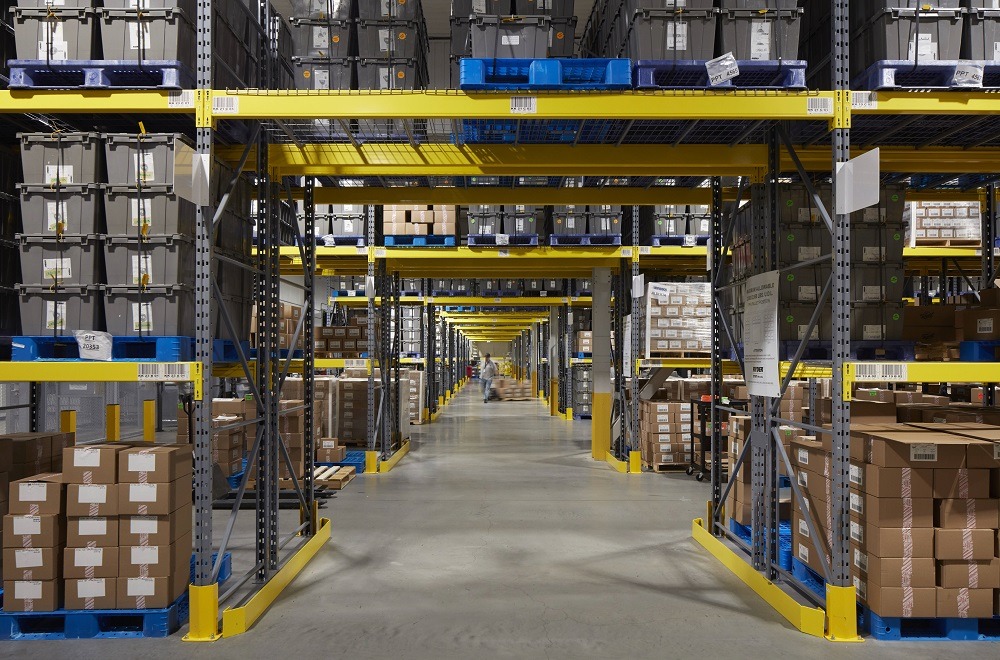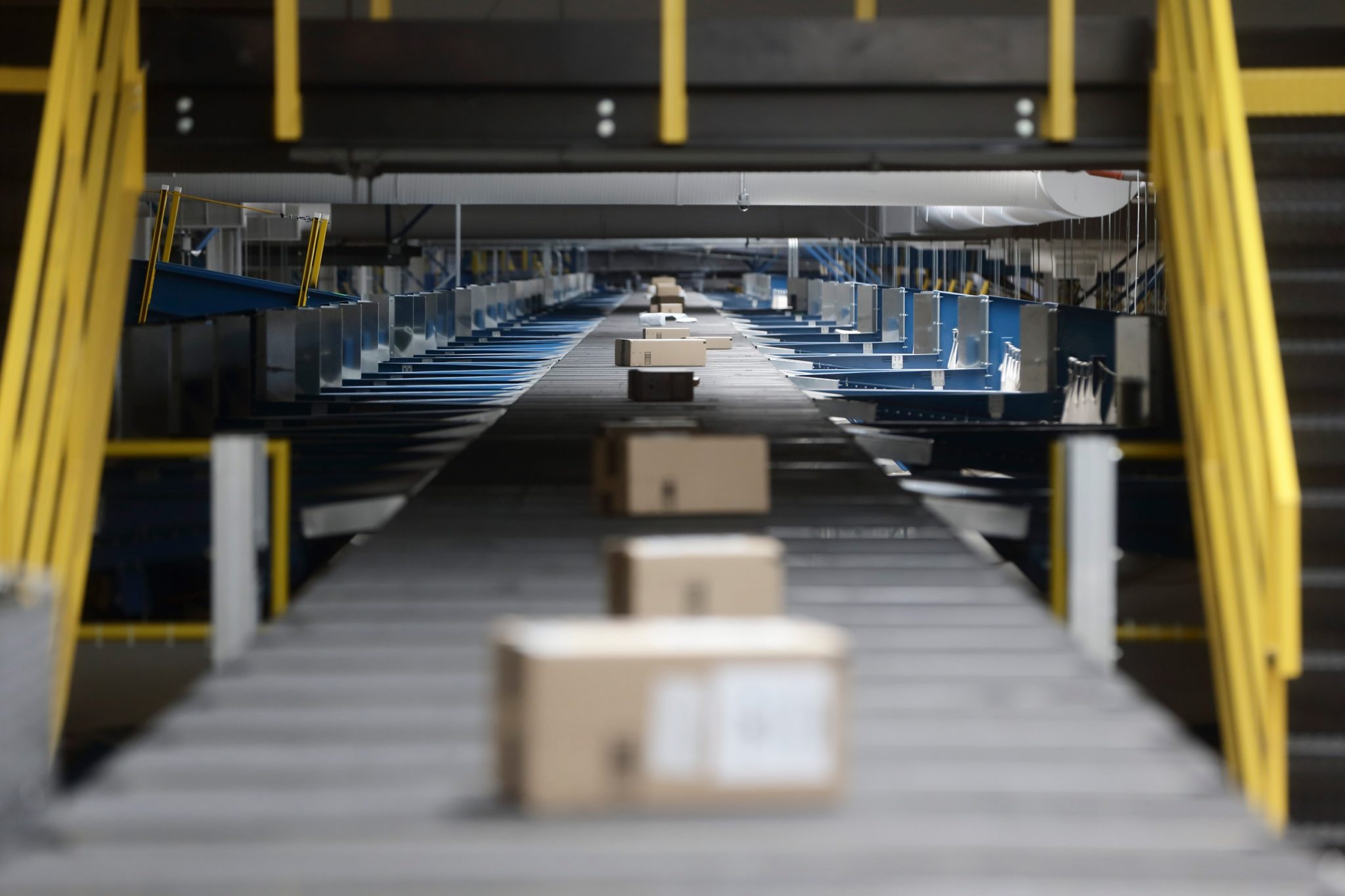The Business Of Mail-Order Marijuana

While consumers in the United States can only dream of having legal cannabis arrive by mail, those in Canada have enjoyed the luxury for more than a year now — and even longer for many medical patients.
Yet, mail-order sales only accounted for 5.9% of the recreational market in September 2019 — a steep decline from the 43.4% of sales in October 2018, the first month of legalization, when only a handful of legal retail stores were open across the country.
Statistics Canada attributes the decrease in mail-order sales to the increase in brick-and-mortar cannabis stores, but mail-order marijuana providers also face ample competition from the black market and are prohibited from advertising.
Currently, there are approximately 400 licensed cannabis stores in Canada, or one for every 72,250 adults. In the first year of legalization, consumers bought $908 million worth of legal, Canadian cannabis (about $690 million USD). Statistics Canada also reports that only 25% of marijuana users between 19 and 44 — the demographic with the highest concentration of consumers — exclusively get cannabis from legal sources. The majority of that demographic obtains cannabis through a combination of legal and illegal sources and/or friends and family.
Marijuana Venture took a closer look at three legal mail-order providers to get a better understanding of their business models and how they are competing with the black market one year after the legalization of adult-use sales.
British Columbia Liquor Distribution Branch
Every gram of cannabis that is sold legally in British Columbia goes through the British Columbia Liquor Distribution Branch (LDB).
It is both the sole direct-to-consumer seller of cannabis and the only wholesaler of cannabis for licensed retail stores in the entire province.
The for-profit government entity can distribute cannabis from any federally licensed producer. After entering into a sales contract with a producer, cannabis is shipped from the licensed producer to the LDB’s distribution center in Richmond. From there, orders are shipped to retailers and private addresses through the federal mail system, Canada Post. According to LDB spokeswoman Viviana Zanocco, the distributor currently works with approximately 37 producers and supplies all 103 cannabis stores open in British Columbia.
Although the LDB is a for-profit entity, its cannabis division’s top priorities are to keep cannabis out of the hands of minors, ensure consumers have a safe supply and to help eliminate the black market.
“That is why the mail-order thing was such a big deal, because it was going to take time to get stores going in smaller communities,” Zanocco says. “Right now, no matter where you live in B.C., you could buy (cannabis) online and get it, and it’s the same shipping fee.”
The farthest distance a customer’s order was shipped was 2,400 kilometers (1,491 miles).
In the first year of legalization, the LDB completed 148,754 online transactions. Zanocco declined to provide specific revenue information, but during the first year of cannabis sales, the LDB reported contributing $1.1 billion to funding government services, about $2 million short of its projections. In its 2018/19 annual service plan report, CEO R. Blain Lawson said the shortfall was “due in large part to the upfront costs associated with adding the wholesale distribution and retail sale of nonmedical cannabis to our business.”
 Canopy Growth Inc
Canopy Growth Inc
Canopy Growth
At the beginning of adult-use sales, Canopy Growth had 2.4 million square feet of production space and the world’s largest cannabis distribution center.
It was also one of only two companies licensed to sell recreational cannabis online in Manitoba, a province with about 1.4 million people.
Then-CEO Bruce Linton said the company was going to focus on physical retail, but at the pace that Health Canada, the agency that regulates and licenses cannabis businesses, has been licensing new stores, Canopy has relatively few options for selling the 34,000 kilograms of cannabis it’s producing every quarter.
The company’s distribution facility in Smiths Falls, Ontario spans more than 230,000 square feet and employs about 800 people. It’s large enough to store roughly $1 billion worth of cannabis, but Canopy’s mail-order business, which has the capacity to ship up to 500,000 units per day, hasn’t flourished.
The company offers same-day shipping for any order placed before 3 p.m. and armored transportation for next-day shipments to anywhere in the country.
Like many of Canada’s licensed producers, Canopy hopes the updated regulations allowing edibles and vape products, known widely throughout the industry as Cannabis 2.0, will draw consumer interests away from illicit competition.
In addition to launching its lines of infused chocolate and vape products, the company has received an additional license from Health Canada for its 150,000-square-foot beverage facility that will have the capacity to bottle 5 million beverages a month.
 Unlike many mail-order cannabis companies, Cann Mart can do same-day shipping
Unlike many mail-order cannabis companies, Cann Mart can do same-day shipping
Cann Mart
Cann Mart, a subsidiary of Namaste Technologies, is a tech company that is licensed to facilitate adult-use and medical cannabis sales across the country. The Toronto-based company has found its niche by helping licensed producers get their products to market.
Cann Mart only has a sales license, meaning it does not grow cannabis — which is a good thing, according to chief technology officer Chad Agate.
“It keeps us focused on finding the best product and getting the best product into the consumers hands,” Agate says.
“And I’m not that great of a grower,” he adds with a laugh.
While Cann Mart has a similar business model to many cannabis-focused tech companies in California, it is set up to make money from each cannabis transaction, rather than licensing its software. Agate says the company was built to help licensed producers get their product to market since many of them do not have licenses for sales. He says the model became more viable as the market matured.
“At first, everyone wanted to be vertically integrated and now we’re seeing the industry maturing and people want to focus on what they do best,” Agate says.
Because Cann Mart facilitates direct sales to cannabis patients and producer-to-retailer sales, the company’s biggest competition is the black market, not other licensed sellers.
Many frustrations stem from black market competition as illicit operators don’t pay taxes, manage a traceability system or worry about licensed call centers or delivery protocol.
“They can just have some guy deliver it to your house,” Agate says. To make matters worse, he says, legal websites and dispensaries are not allowed to advertise, and it’s difficult to discern legal businesses from their illegal counterparts.
“Everyone knows they can go onto a site in Toronto and have high-quality cannabis, shatter, butter or vape pens all delivered within 40 minutes,” Agate says. “How do you compete with that? The product, up until very recently, in the black market been has a higher quality, better price and more product selection.”
In order to keep consumers safe and licensed businesses profitable, Agate advocates for more enforcement to shut down black market operators and to allow license holders to sell directly to adult-use consumers. He believes the arrival of Cannabis 2.0, which allows the sale of edibles and vape products, will help licensed companies give consumers products they actually want.
 All orders sent through Canada Post need to be delivered in person to their verified purchasers.
All orders sent through Canada Post need to be delivered in person to their verified purchasers.
Evolving Market, Antiquated Regulations
With the advent of Cannabis 2.0, physical and online cannabis stores can both legally sell vape and edible products. But the adversity facing Canada’s online businesses goes beyond product offerings, and business owners may have their hands tied for some time to come.
For starters, most online cannabis retailers in Canada are illegal. Prior to December 17, the immediate giveaway that an online retailer was illegal was having edibles as an option — but that’s not obvious to the average consumer typing “buy weed online Canada” into their search engine. And when a consumer is looking for cannabis online, identifying a legal provider is akin to finding a needle in a haystack because licensed companies are strictly prohibited from advertising.
Then there’s the staggeringly limited number of legal, online cannabis retailers. Ontario, the most populated province in Canada, with 14 million people (about 40% of the country’s total population), has just one licensed online store for recreational cannabis. The second, third and fourth most populous provinces, Quebec, British Columbia and Alberta, also have one licensed online retailer apiece. Manitoba and Saskatchewan are the only two provinces with multiple licensed stores.
Regulators in Ontario are proposing an amendment to allow licensed cannabis retailers to sell products directly to consumers through a shared platform that facilitates sales.
Federal legalization is the biggest differentiator between the United States and Canada. But it’s not the cannabis wonderland entrepreneurs have dreamt about. Sure, there’s access to banking and the federal mailing system, but there’s also stringent restrictions on advertising, packaging, zoning, mandated security requirements, traceability and plenty of other limitations familiar to operators in the states.
Will the U.S. ever allow mail-order sales like Canada? It’s impossible to say. But one can only imagine the potential complications of doing so in a country with 10 times Canada’s population.
420 Intel is Your Source for Marijuana News
420 Intel Canada is your leading news source for the Canadian cannabis industry. Get the latest updates on Canadian cannabis stocks and developments on how Canada continues to be a major player in the worldwide recreational and medical cannabis industry.
420 Intel Canada is the Canadian Industry news outlet that will keep you updated on how these Canadian developments in recreational and medical marijuana will impact the country and the world. Our commitment is to bring you the most important cannabis news stories from across Canada every day of the week.
Marijuana industry news is a constant endeavor with new developments each day. For marijuana news across the True North, 420 Intel Canada promises to bring you quality, Canadian, cannabis industry news.
You can get 420 Intel news delivered directly to your inbox by signing up for our daily marijuana news, ensuring you’re always kept up to date on the ever-changing cannabis industry. To stay even better informed about marijuana legalization news follow us on Twitter, Facebook and LinkedIn.




